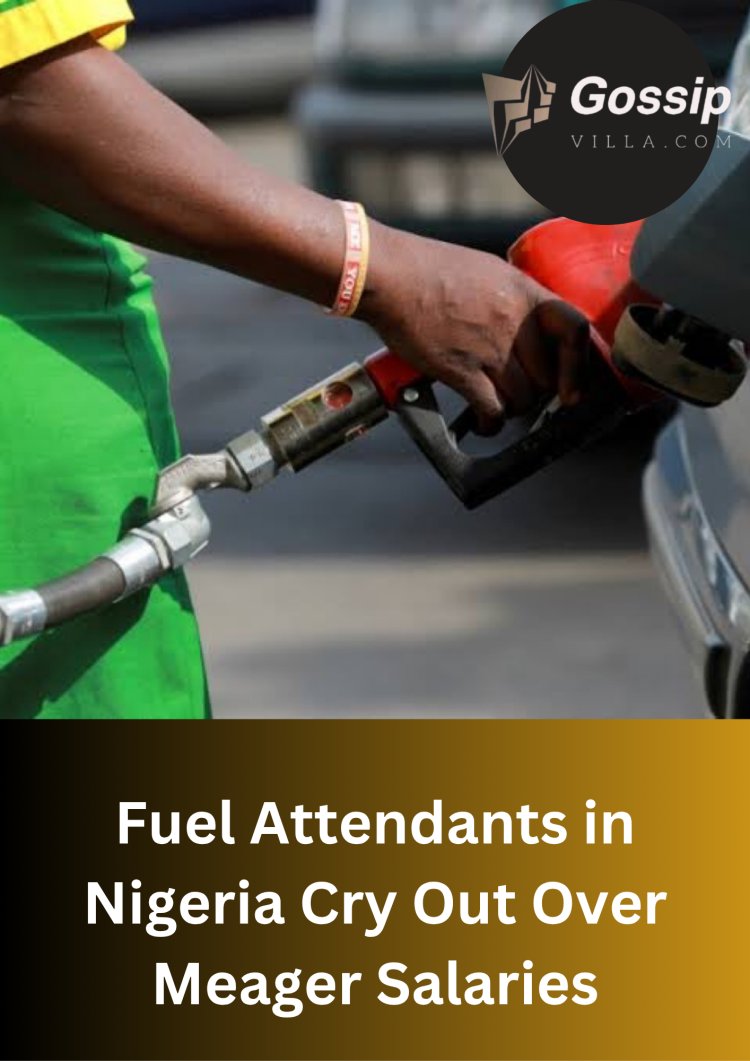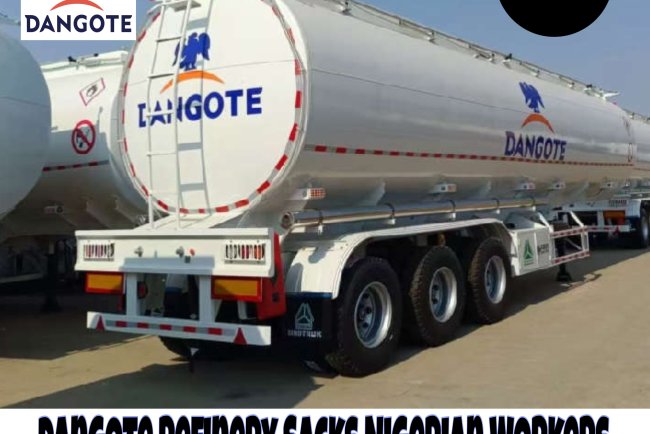Fuel Attendants in Nigeria Cry Out Over Meager Salaries:
Fuel Attendants in Nigeria Cry Out Over Meager Salaries:

Fuel Attendants in Nigeria Cry Out Over Meager Salaries:
Surviving on Just ₦20,000 a MonthIn the bustling petrol stations dotting Nigeria's cities and highways, a quiet crisis is unfolding. Fuel attendants—those unsung heroes who pump gas, wipe windscreens, and brave the elements day in and day out—are raising alarms over wages that barely cover a week's groceries. Earning as little as ₦20,000 monthly, these workers say they're trapped in a cycle of poverty amid skyrocketing living costs.It's a stark reminder of the human cost behind the nation's fuel supply chain, where global oil prices soar but local paychecks remain stuck in the past.
Recent reports paint a grim picture
Across major cities like Lagos, Abuja, and Kano, attendants shared their stories with Daily Trust, revealing salaries hovering between ₦20,000 and ₦30,000—far below the national minimum wage of ₦70,000 introduced earlier this year. "How can anyone survive on this in 2025?" one attendant in Lagos lamented, echoing sentiments from colleagues nationwide. With inflation at over 30% and basics like rice and fuel itself costing a fortune, these wages mean constant trade-offs: skip meals to pay rent or forgo medical care for kids' school fees.
The issue isn't new, but it's gaining urgency. Petrol station workers, often overlooked in labor discussions, have turned to unions for help. They've appealed directly to the Nigerian Labour Congress (NLC), pleading for intervention against "unfair treatment" and demanding fair wages, health benefits, and job security.Groups like the Independent Petroleum Marketers Association of Nigeria (IPMAN) have been criticized for neglecting these frontline staff, who number in the tens of thousands at over 30,000 retail outlets. An economist even slammed the Petroleum and Natural Gas Senior Staff Association of Nigeria (PENGASSAN) for focusing on high-earners while ignoring these low-paid workers, urging a broader push for equity in the oil sector.
Why does this persist?
Nigeria's downstream oil sector is a patchwork of private operators, many small-scale, squeezed by subsidy removals and import dependencies. Attendants, mostly young and unskilled, lack bargaining power. "If you complain, you're out the door—no notice, no severance," shared one worker anonymously
Add hazards like chemical exposure and long shifts under the sun, and it's a recipe for burnout. Yet, not all stories are bleak; a viral clip from Abuja showed a resilient attendant vowing to stick with her ₦15,000 job for its stability, highlighting the desperation in a youth unemployment rate topping 40%.
Public reactions/opinion
As voices amplify on social media— with posts from influencers like Instablog9ja racking up thousands of views—pressure mounts for change.
In Conclusion
The NLC's response could set a precedent, potentially rippling into broader wage reforms. For now, these attendants fuel Nigeria's engines while their dreams run one empty.Policymakers, unions, and employers must act: fair pay isn't a luxury—it's the bare minimum for a workforce keeping the country moving.In a nation rich in black gold, it's time to ensure its guardians don't live in poverty's shadow. What do you think—should fuel attendants unionize nationwide?
News Source; Legit.ng, Dailytrust.com
What's Your Reaction?




















